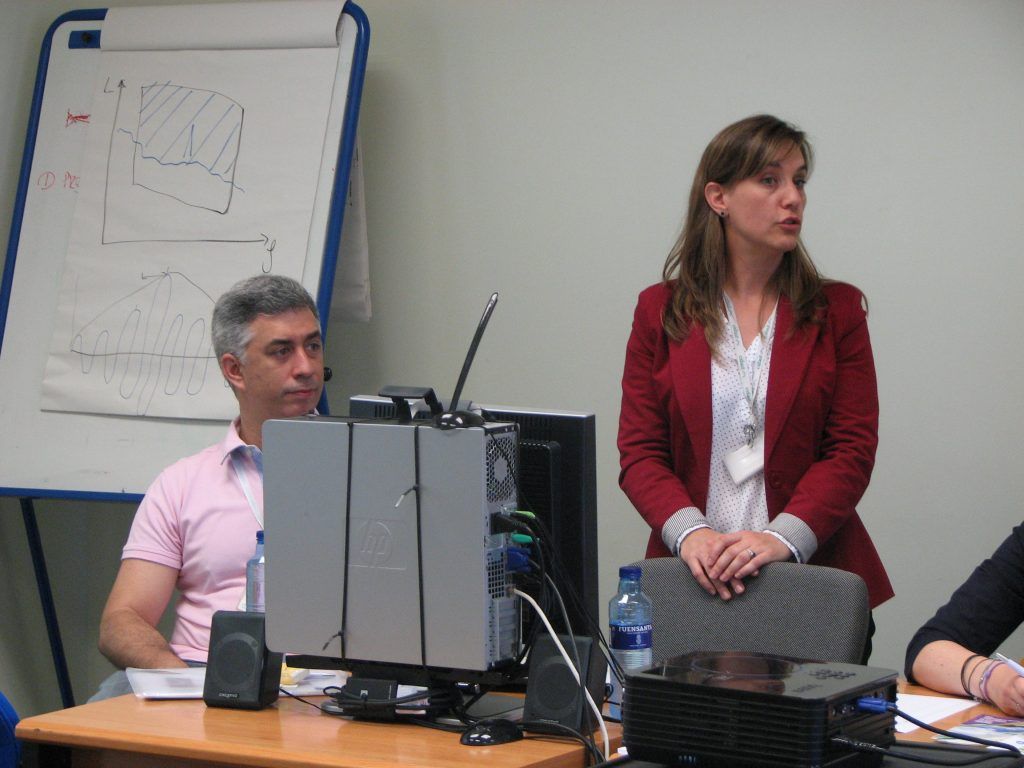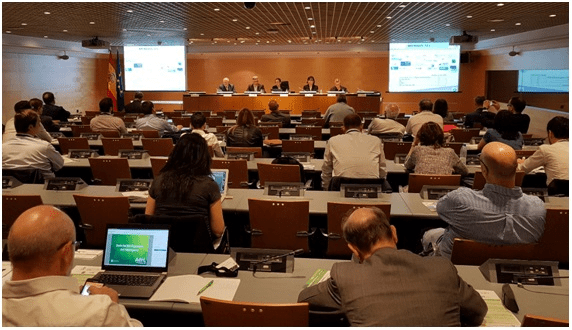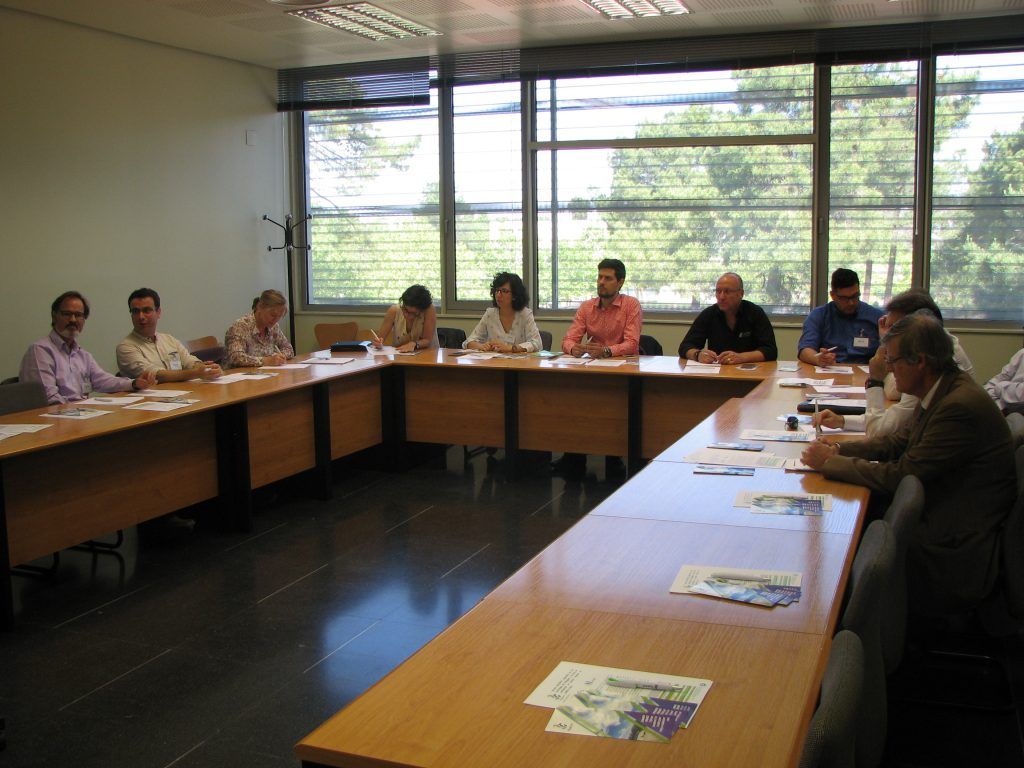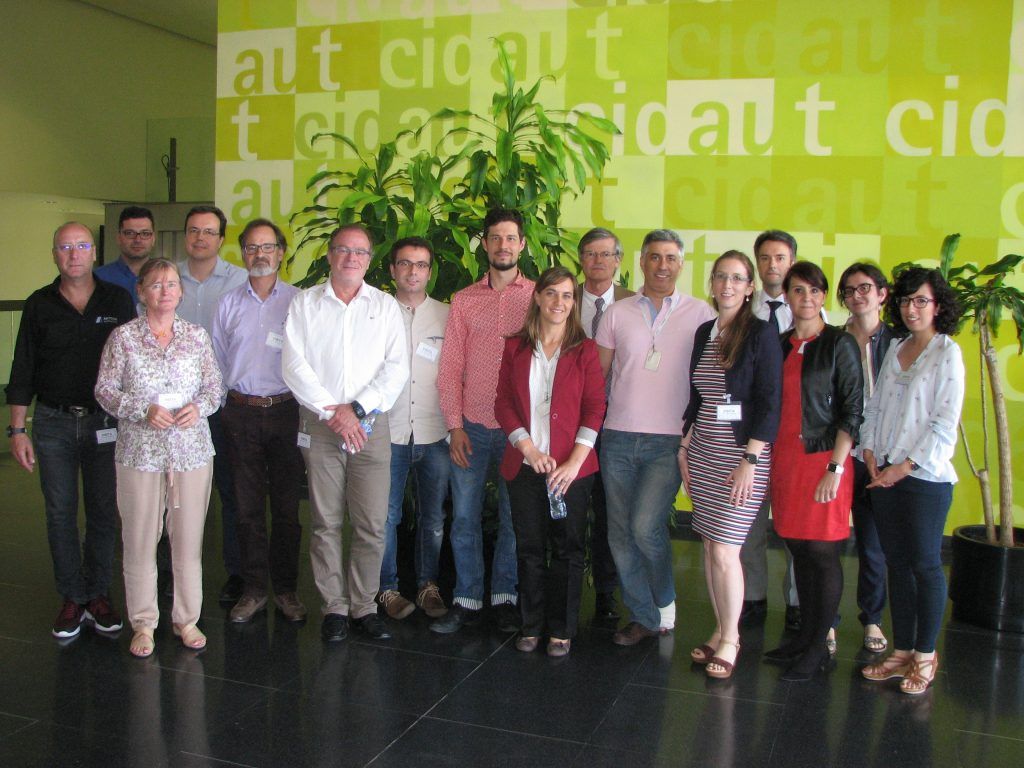The Hyacinth project comes to an end with two workshops in Spain where CIDAUT participated very actively.
More than 50 people participated in the first of the workshops held on 9th May at the Ministry of Economy, Industry and Competitiveness (Madrid): «What does Europe think about hydrogen technologies and fuel cells?” The event, organized by Hydrogen National Centre (CNH2-Hyacinth coordinator), the Spanish Hydrogen and Fuel Cell Technology Platform (PTE HPC) and Hydrogen Association (AeH2) presented to the audience the main results of the HYACINTH project whose objective is to gain a better knowledge of the social acceptance of hydrogen and fuel cell technologies and of two applications (stationary and transport) at European level.
The workshop began with a welcome to the audience from CNH2 and a short explanation by the PTE HPC representative who explained to the audience the objectives, organization and activities that the PTE HPC develops.
Mr. Daniel Sopeña (CIDAUT) presented to the audience the comparative cross-country analysis of the policies and projects developed in recent years. Mr. Christian Oltra (CIEMAT CISOT) explained the methodology followed in the project, as well as the results of the report on the public acceptance of hydrogen and fuel cell technologies and Mrs. María Jaen (CNH2) the results of the report on the stakeholders acceptance.
One of the most expected moments of workshop came when Mr. Adrian Morris (from the University of Sunderland-UK) showed case studies of the toolbox developed within the project with the aim of providing practical information to manufacturers and developers of hydrogen technologies and fuel cells. This toolbox provides them information regarding the opinion of 7,000 respondents among the general public of 7 European countries and 250 respondents among business interest groups, the scientific community and public administrations In 5 European countries.
The tool shows results organized according to key issues within the framework of technology acceptance (such as Knowledge and Experience, Confidence, Costs, Risks and Benefits, Consequences of its implementation, Attitude or Initial Acceptance.
The second workshop of the Hyacinth project in Spain took place on 31st May at CIDAUT’s facilities (Boecillo). On this occasion, CIDAUT hosted the conference organized jointly with the CNH2 and titled: “Acceptance of Hydrogen Technologies and Fuel Cells in Europe. Impact in Castilla y León”.
On this workshop, in addition to presenting the results regarding the acceptance studies carried out in the Hyacinth project by CIDAUT and CNH2, there was a remote online presence of Mr. Adrian Morris who showed the developed toolbox to all the assistants. Besides, the most interesting part of the day was the fact of bringing together those authorities and local entities of Castilla y León related to Hydrogen and Fuel Cell technologies. The event was attended by personnel from the Development Agency of Castilla y León (ADE), the Regional Energy Agency (EREN), the Municipal Energy Agency of Valladolid (AEMVA), the University of Valladolid (UVA), as well as several companies related to the automotive industry.
In conclusion, this workshop achieved the main objectives of the day: disseminate Hyacinth results and communicate and discuss with the most important entities interested in boosting the development of Hydrogen and Fuel Cell technologies in the region of Castilla y León.
Hyacinth Project information is available in www.hyacinthproject.eu and the toolbox can be accessed through https://hyacinth.sunderland.ac.uk.



